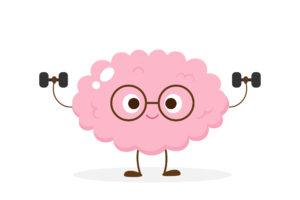Wellness Check
Fuelling Your Healthy Brain – Which Vitamins Should You Take?
Nov 2022 | By Annie Gaudreault
We now know that what we eat directly affects various parts of our bodies. Just like an athlete needs fuel to perform at the highest level, your brain also needs specific nutrients to operate at its best and to prevent disease.
The brain is a hungry organ that thrives on healthy foods. Let’s review the top nutrients to support its optimal functioning.

Vitamin B9 (Folate)
This nutrient has many crucial roles including making neurotransmitters which are key to regulating our mood and helping us to think clearly.
It’s also important to note that inadequate folate has been linked to increased levels of inflammation, and inflammation leads to disease.
Some top sources: Lentils, chicken liver and chickpeas
Iron
Your brain requires roughly 20 percent of your total energy to function well every day. And to create that energy, the brain cells need abundant access to hemoglobin, the iron-based protein in your blood that transports oxygen from the lungs to the brain.
Some top sources: Sesame seeds, chicken, pumpkin seeds, and red meat
Omega-3 Fats
These unique types of fats are amazing brain boosters, stimulating the brain to produce more of the important nerve growth factors that keep the brain “plastic”. Essentially, giving the brain the ability to repair, grow and adapt.
Some top sources: Wild salmon, tuna, hemp and flax seeds
Magnesium
Magnesium is often referred to as “the calming chemical.” It’s important for the brain as it is required for the proper functioning of nerve and brain cells.
Some top sources: Almonds, cashews, and spinach
Potassium
Another potent mineral for the brain, potassium deficiency is linked to mental fatigue as well as a decrease in mood. Potassium also helps regulate serotonin, the “happy hormone.”
Some top sources: Beet greens, bananas and spinach
Selenium
You may have heard of antioxidants, which help protect all of your cells, including brain cells, from damage. The body’s top antioxidant is called glutathione and it requires selenium to be synthesized by your body.
Some top sources: Brazil nuts, lobster, and tuna
Vitamin B1 (Thiamine)
This vitamin is critical for your brain’s overall activity. Low thiamine levels lead to low energy/physical weakness, apathy, brain fog and irritability.
Some top sources: Sunflower seeds, pork, and trout
Vitamin A
This vitamin is sometimes called Retinol. Ample consumption of vitamin A is strongly linked to a reduced risk of dementia, cancer and depression. Even newer research also suggest that vitamin A helps to facilitate neuroplasticity, the brain’s ability to modify, change, and adapt.
Some top sources: Carrots, pumpkin, and sweet potato
Vitamin B6
Vitamin B6’s primary role is to help convert the food we eat into energy. It is also one of the ingredients required to make hormones, such as serotonin and norepinephrine, both of which influence mood.
Some top sources: Wild salmon, chicken and chickpeas
Vitamin B12
Like the other B vitamins, B12 helps to produce crucial brain chemicals that regulate mood and anxiety levels, including serotonin, norepinephrine and dopamine. It also supports brain cells, essentially keeping them lubricated.
Some top sources: Eggs, meat (especially beef liver), and nutritional yeast
Vitamin C
It’s not just going to protect you from colds, Vitamin C promotes cell health and is critical to better absorption of minerals such as iron. It is a great antioxidant and a partner to many biochemical reactions.
Some top sources: Bell peppers, broccoli and brussel sprouts
Zinc
This important mineral is a protective nutrient that helps to fight cancer, infections and excess inflammation.
Some top sources: Oyster, sesame seeds and red meat
Two Additional Nutrients for Brain Health:
Monounsaturated Fats: These special types of fats help reduce inflammation and provide the building blocks to protect the brain cells. Top sources include extra virgin olive oil, almonds and flax seed oil.
Choline: A critical brain builder that helps regulate inflammation. Great sources include eggs, beef and brussels sprouts.
Annie Gaudreault is a nutritionist, speaker, coach and trainer helping hundreds of midlife women make sense of the wellness information out there and make sustainable changes to their health. You can read more at Veev Health and Wellness.


